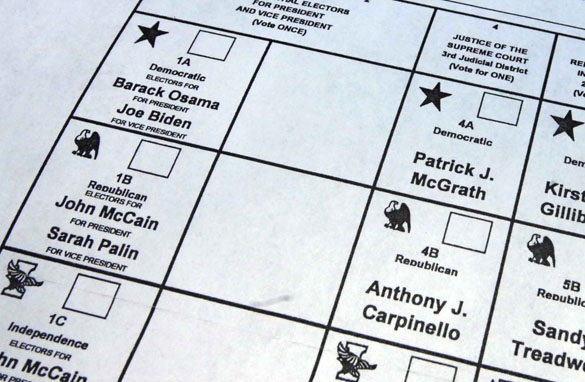"We keep making suggestions, putting a sample ballot on the Web, they won't do it. What about recruiting poll workers . . . [who] have to have training ... they don't pay any attention to it. What about poll workers from good government groups rather than just political parties? You know, this is an outrage," exclaimed the Mayor.
We couldn't agree more.
Brennan Center surveys in 2003 and in 2006 revealed widespread confusion among Boards of Election in New York about whether a person with a criminal conviction is eligible to vote. Thirty-eight percent of New York's 63 Boards of Election incorrectly responded that individuals on probation cannot vote. A third of the local boards also illegally asked for documentation before allowing persons with criminal convictions to register.
But the New York City boards were among the worst offenders. Three New York City offices—New York County, Queens County, and the New York City Board—incorrectly stated that people on probation are ineligible to vote. In addition, three New York City offices—New York County, Queens County and New York City—improperly required individuals to provide documentation before registering to vote.
This confusion among New York City boards is especially disturbing, considering the majority of people coming out of prison return to the five boroughs. Once the Board of Elections gives an individual the wrong information, it is unlikely he'll follow up a second time to get the right answer and he will be improperly disenfranchised for years, if not for life. In addition, misinformation on felony disenfranchisement spreads through communities, potentially dissuading hundreds of thousands of eligible voters. (and NYC is not alone, as we recently found in the report De Facto Disenfranchisement)
It is the Board of Election's duty to train every election official on the law and registration procedures for all New Yorkers, including those who have spent time in prison. Another solution is to notify people the minute that they leave prison or parole that they are eligible to vote.
Mayor Bloomberg is worried about chaos at the polls on Election Day, and wants the city's election officials to implement changes to reduce disenfranchising voters. In his words, "the public is as badly served by this agency as any city thing or state thing that I've ever seen."
Mr. Mayor, we have a few more things to add to your wish list





